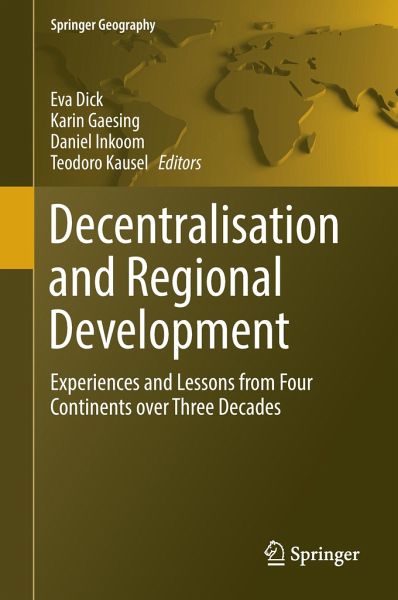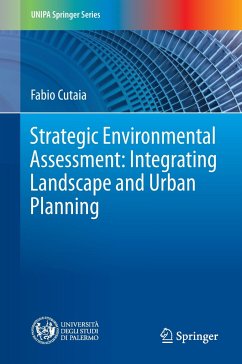
Decentralisation and Regional Development
Experiences and Lessons from Four Continents over Three Decades
Herausgegeben: Dick, Eva; Gaesing, Karin; Kausel, Teodoro; Inkoom, Daniel Kweku Baah

PAYBACK Punkte
38 °P sammeln!
This book analyzes decentralisation, regionaldevelopment paths and success factors in different governance sectors in Ghana,the Philippines, Tanzania and Chile, and discuss overarching aspects ofrelevance. Decentralisation, which refers to the delegation of administrativeresponsibilities, political decision-making and fiscal powers to lower levelsof government, is now considered one of the most efficient engines ofdevelopment. In Sub-Saharan Africa decentralised states have made more progressin reducing poverty than those states with lower decentralisation scores. Butin many countries, decentr...
This book analyzes decentralisation, regionaldevelopment paths and success factors in different governance sectors in Ghana,the Philippines, Tanzania and Chile, and discuss overarching aspects ofrelevance. Decentralisation, which refers to the delegation of administrativeresponsibilities, political decision-making and fiscal powers to lower levelsof government, is now considered one of the most efficient engines ofdevelopment. In Sub-Saharan Africa decentralised states have made more progressin reducing poverty than those states with lower decentralisation scores. Butin many countries, decentralisation is still considered a 'work in progress'with unsatisfactory results. From a spatial point of view, the link betweendecentralisation and regional and district development is particularlyinteresting. Both in the North and in the South, regional or district developmentis seen as holding the potential for advancing social and economic development,and even more so in decentralised political settings. Space-based networks atthe regional or district level are considered instrumental for responding tolocally specific challenges, e.g. in areas lagging behind economically.












